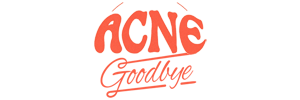Some parents of voucher recipients reported high levels of satisfaction, and studies have found increased voucher student graduation rates. Some studies have found, however, that students using vouchers to attend private schools instead of public ones did not show significantly higher levels of academic achievement. The report showed some cases of successful voucher where there was an oversupply of quality private places and an efficient administrative authority and of subsidy programs. Evaluations of the effectiveness of international support to the sector are rare.
- In this general sense, it explores how teachers can bring about experiences in learners to advance their understanding of the studied topic and how the learning itself takes place.
- A World Bank study found that “53 percent of children in low- and middle-income countries cannot read and understand a simple story by the end of primary school.” While schooling has increased rapidly over the last few decades, learning has not followed suit.
- Instructors in primary and secondary institutions are often called teachers, and they direct the education of students and might draw on many subjects like reading, writing, mathematics, science and history.
- TheMedia Centrecontains links to common media topics, other education agencies, the Beehive and useful links as well as new and archived media releases.
- For the subfield of formal epistemology and computer science, see Formal learning theory.
Around the world, children are deprived of education and learning for various reasons. Children living through economic fragility, political instability, conflict or natural disaster are more likely to be cut off from schooling – as are those with disabilities, or from ethnic minorities. In some countries, education opportunities for girls remain severely limited. Education refers to the discipline that is concerned with methods of teaching and learning in schools or school-like environments, as opposed to various nonformal and informal means of socialization.
Michigan Department of Education
Instructors in primary and secondary institutions are often called teachers, and they direct the Education News of students and might draw on many subjects like reading, writing, mathematics, science and history. Instructors in post-secondary institutions might be called teachers, instructors, or professors, depending on the type of institution; and they primarily teach only their specific discipline. With the passing of NCLB in the United States , teachers must be highly qualified. Established in 1919, IIE is a global not-for-profit that designs and implements international education strategies and program services. We work with governments, policymakers, educators, and employers across the globe to prepare students and professionals for the global workforce. With support from donors, we also create initiatives that assist students, scholars, and artists whose lives and work are threatened; expand teaching and learning across cultures; and provide opportunities to underserved populations.
Then send your curated collection to your children, or put together your own custom lesson plan. I love that it shows me the areas my child needs to improve on and directs me to resources to work with him on. Unlock special features and access to everything Education.com offers with a Premium membership.
Curriculum
Access to this content in this format requires a current subscription or a prior purchase. Prepare for emerging roles and future careers with Autodesk’s industry-validated certifications. We’ve updated our privacy policy so that we are compliant with changing global privacy regulations and to provide you with insight into the limited ways in which we use your data.
Despite favourable studies on effectiveness, many people may still desire to choose traditional campus education for social and cultural reasons. Charter schools are another example of alternative education, which have in the recent years grown in numbers in the US and gained greater importance in its public education system. There is disagreement in the academic literature on whether education is an evaluative concept. So-called thick definitions affirm this, for example, by holding that an improvement of the learner is a necessary requirement of education. However, different thick definitions may still disagree among themselves on what constitutes such an improvement. Thin definitions, on the other hand, try to give a value-neutral account of education.
Kindergarten “provides a child-centred, preschool curriculum for three- to seven-year-old children that aim at unfolding the child’s physical, intellectual, and moral nature with balanced emphasis on each of them.” This is ISCED level 02. Educational psychology can in part be understood through its relationship with other disciplines. It is informed primarily by psychology, bearing a relationship to that discipline analogous to the relationship between medicine and biology. Educational psychology, in turn, informs a wide range of specialties within educational studies, including instructional design, educational technology, curriculum development, organizational learning, special education and classroom management. Educational psychology both draws from and contributes to cognitive science and the learning sciences.
Each discipline usually has several sub-disciplines or branches, and distinguishing lines are often both arbitrary and ambiguous. Examples of broad areas of academic disciplines include the natural sciences, mathematics, computer science, social sciences, humanities and applied sciences. Some authors stress its value to the individual, emphasizing its potential for positively influencing students’ personal development, promoting autonomy, forming a cultural identity or establishing a career or occupation. Other authors emphasize education’s contributions to societal purposes, including good citizenship, shaping students into productive members of society, thereby promoting society’s general economic development, and preserving cultural values. Dunn and Dunn focused on identifying relevant stimuli that may influence learning and manipulating the school environment, at about the same time as Joseph Renzulli recommended varying teaching strategies.
